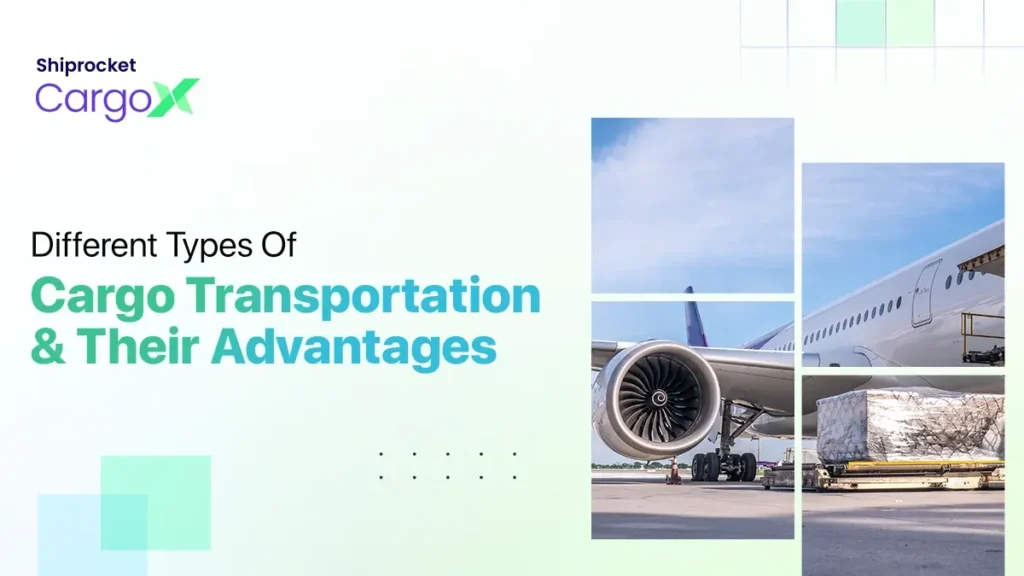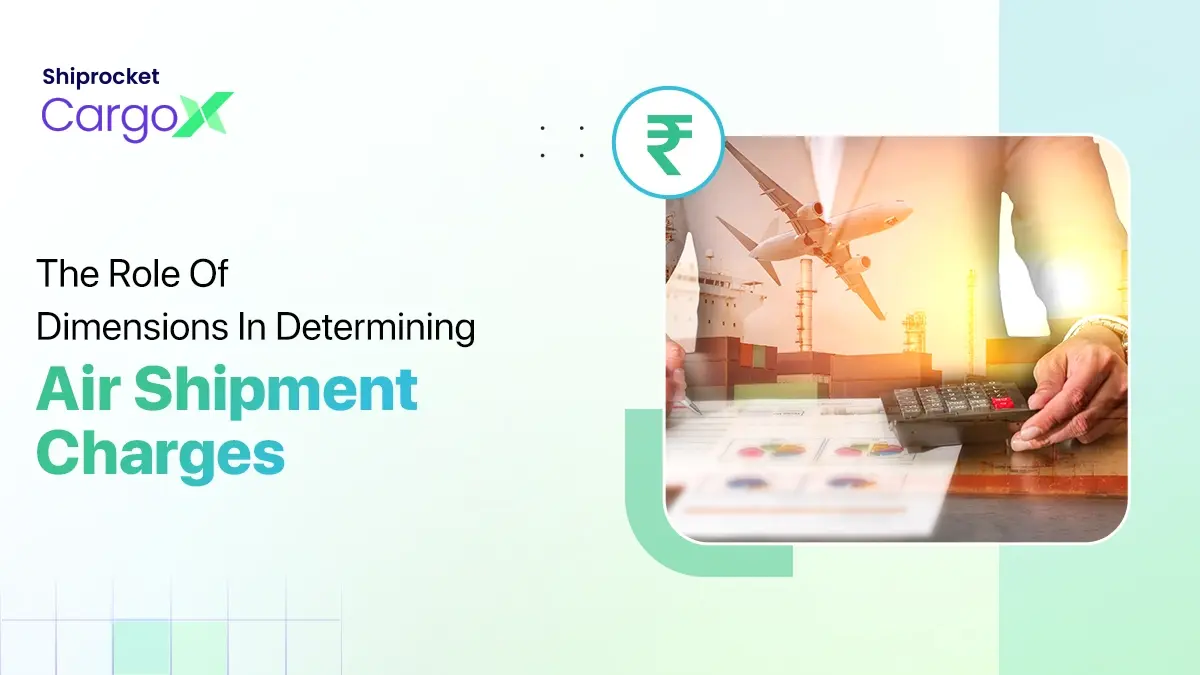Types of Cargo Transportation: Exploring Trade Channels
Various types of goods are transported from one place to another daily. This movement can be within a country, between countries, or between continents. These goods transported using different mediums through land, water, and air routes are referred to as cargo. The cost involved and the time taken to transport the cargo varies depending on the mode of transportation you select. Their reach also differs. Land-based cargo transportation, for instance, has its limitations. It can only be used to transport goods within a country or to the adjoining countries that can be reached via road. Research shows that the global land freight forwarding market is expected to grow at a CAGR of 7.2% to reach a market size of USD 291.3 billion in 2025. Water-based cargo transportation enables shipping goods across borders and so does air-based cargo transportation. However, the latter enables speedy deliveries while the former may take longer to reach the destination.
In this article, you will learn about the different types of cargo transportation methods in detail. The information is meant to help you choose the most suitable medium to ship your cargo from one place to another.

Land-based Cargo Transportation
It covers the transportation of cargo through trains, trucks, and other means of land transport. There are three main types of land transportation. Here is a look at the same:
- Trucks – Trucks are widely used to transport goods within a city, country as well as outside. They reach where trains and other modes of transportation cannot, thereby providing end-to-end connectivity. You can send your goods from warehouses in one state to retail stores in another.
- Railways – Trains are used to transport huge quantities of goods to distant places connected through rail routes. Tonnes of food grains are transported each day to different places via goods trains. This is a more sustainable method of transportation as trains leave less carbon footprint compared to trucks.
- Pipeline Transport – This medium is used for international land transportation. Crude oil, chemicals, and gases are mostly transported using this means of transportation.
Land transport is commonly used to ship huge tonnes of goods and is largely known for the benefits it offers. However, it also has certain drawbacks. Here is a brief look at the various advantages and disadvantages of this type of cargo transportation:
Advantages
- Good Accessibility – Land transportation such as trucking gives access to remote locations, thereby enabling deliveries to different places easier.
- Economical – This mode of shipping goods is fairly economical compared to air and water.
- Best for Small Distances – Rail and road transport is the best option when it comes to transporting goods to shorter distances.
Disadvantages
- Susceptible to Delays – Land-based cargo transportation is susceptible to delay more than sea and air transport. This is because they often face the issue of traffic congestion, especially while moving within a city or at borders. In addition to delaying the shipment, it adds to the operational cost.
- Increase in Pollution Levels – Trucks as well as trains use high amounts of fossil fuels and emit harmful gases. Increasing use of land transportation is adding to the pollution levels and causing harm to the environment.
Water-based Cargo Transportation
This involves shipping goods by boats and ships across rivers, lakes, seas, and oceans. For centuries, ships have been used as a vital means to transport different types of goods from one place to another. Statistics reveal that the deadweight tonnage of container ships has grown from around 11 million metric tons to approximately 293 million metric tons from 1980 to 2022. From food grains to heavy machinery, ships prove to be useful for carrying all kinds of cargo. Let us understand water-based cargo transportation better by looking at its advantages and disadvantages.
Advantages
- Economical – The cost involved in shipping freight overseas via water is quite low in comparison to transporting by air. This is why water-based cargo transportation is being used extensively by businesses around the world.
- Vast Reach – You can ship your goods to various countries around the world using water transport. This medium has helped several companies spread their business overseas and expand their reach.
- Huge Storage Capacity – Ships offer huge storage capacity. Thus, you can ship huge amounts of goods at a time through water.
- Reliable – Ships are dependable as they can keep going even when the weather is unfavourable. If you use this mode of transportation, then the movement of your cargo will not stop unless there is some major problem. Your shipments may face delays with air transportation as flights get delayed more often.
- Eco-friendly – As compared to other modes of transportation, this one does not cause much harm to the environment.
Disadvantages
- Time Consuming – Shipments take weeks to reach your customers across borders when you choose this mode of transportation. It is not favourable for cases that require speedy deliveries.
- Accessibility – Many places do not have ports suitable for all types of cargo ships while others might not have the required facilities to unload different kinds of cargo. This can lead to delays in delivery.
- Not Suitable for Special Cargo – It can be difficult to ship special cargo such as perishable goods and live animals using this mode due to the time taken for the transit.
Air Cargo Transportation
Air cargo transportation is the fastest but also the most expensive of all. Its popularity is growing because of the increasing competition in the eCommerce industry. Businesses are trying to establish a place in the market by ensuring fast and efficient deliveries to their customers around the world. Stringent guidelines have been set for air freight to ensure secure and timely deliveries. Research shows that pharmaceutical and healthcare products have been the most rapidly growing air cargo sectors over the last few years. The trend is likely to continue in the years to come. Let us understand the advantages of air cargo as well as its drawbacks:
Advantages
- Speedy Deliveries – As already mentioned, air freight ensures speedy deliveries. Thus, it is suitable for shipping goods that need to be delivered quickly to overseas markets.
- Transportation of Perishable Items – Perishable items that do not have a long shelf life can be safely transported using this medium.
- Safety of Cargo – Cargo is shipped safely and securely using this medium due to the strict guidelines attached to it. Thus, there is a low chance of damage to the goods during the transit.
Disadvantages
- Expensive – Many businesses, especially those that are bootstrapped or have a limited budget, refrain from using air freight owing to the cost involved.
- Limited Capacity – Unlike ships, flights can only accommodate smaller loads. They cannot carry huge tonnes of goods at once. They are also unsuitable for shipping bulky items.
- Relies on Weather Conditions – Air freight can be impacted adversely due to bad weather conditions such as heavy rain, fog, hailstorms, and snowfall. This often results in flight delays, thereby causing delayed deliveries.
Specialised Cargo Transportation
Specialised cargo transportation involves the shipping of goods that are difficult to be moved long distances using normal shipping methods. They also have special guidelines for packaging, labelling, and shipping. Most of them require additional documentation. The items that require specialised cargo transportation include dangerous goods, live animals, perishable cargo, temperature-sensitive products, and important documents among others. Here is a look at the different kinds of specialised cargo transportation options:
- Expedited Delivery – It is used for goods that need to be shipped quickly. The most optimal route is taken to ship these goods so that they reach their destination fast.
- Oversize Freight – Specialised cargo transportation is also used for shipping large items.
- Temperature-Controlled Transportation – It is used for shipping pharmaceutical products and perishable items. Using this specialised cargo transportation, such items reach their destination safely.
Conclusion
Modern businesses rely upon different types of cargo transportation methods to ship their goods to various destinations around the world. All the mediums of transportation mentioned above support businesses across various industries and help in expanding their reach. Each of these has its own set of advantages and limitations as shared above. It is important to assess your shipping needs to understand which mode of transportation is best suited to your needs and go for it. You can approach logistics services to have a smooth shipping experience. Shiprocket’s CargoX is a trustworthy name in the field of logistics service that facilitates seamless air cargo shipping across borders. They follow a customer-centric approach. They prioritise efficient and timely deliveries by leveraging digitalised procedures. Cargo X boasts a well-trained staff that ensures on-time pick-up and delivery to enhance your customer experience.
Cargo insurance covers the cost of physical damage to goods while they are being shipped using different modes of transportation. Different cargo insurance plans offer different coverage and benefits.




